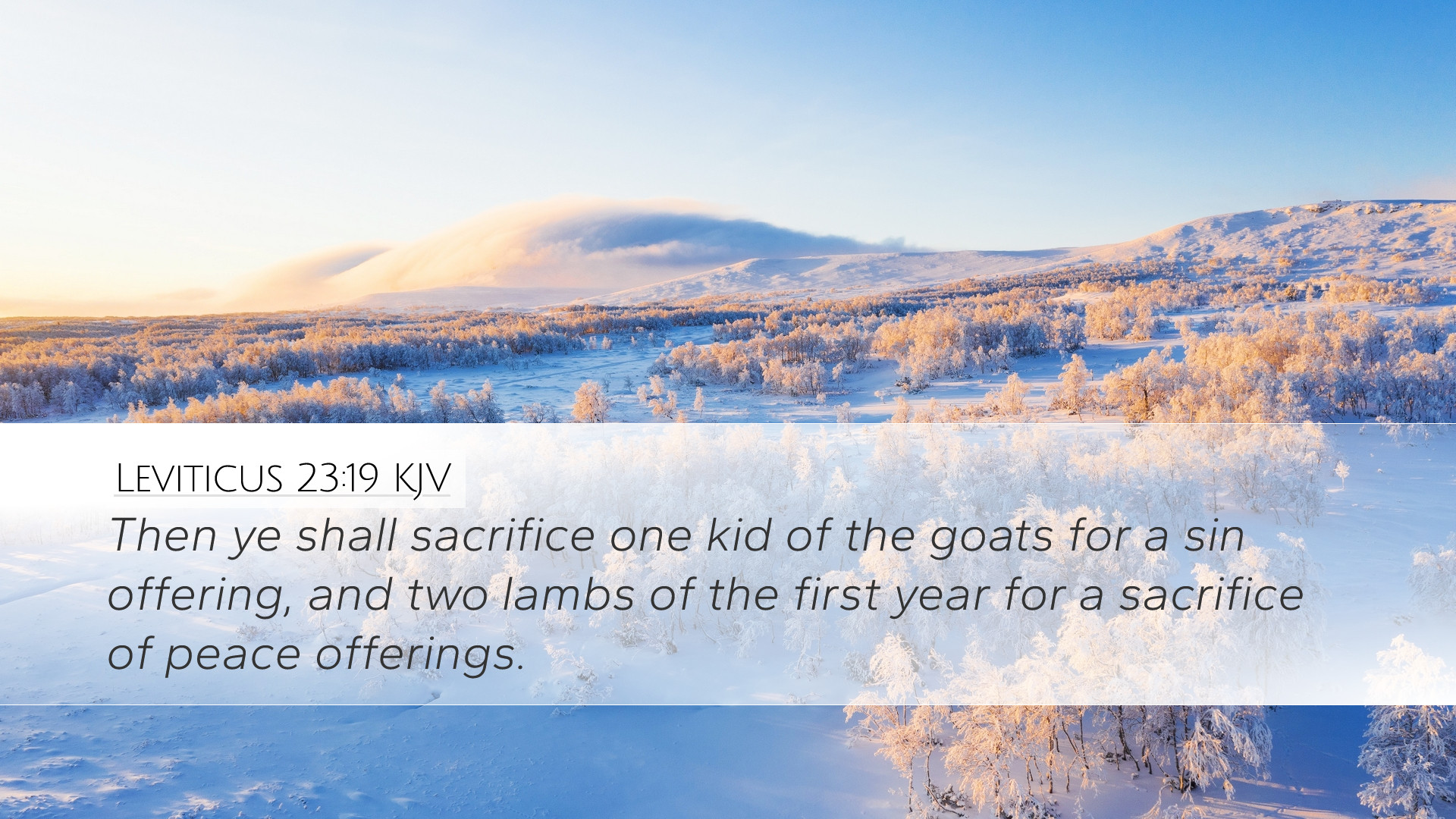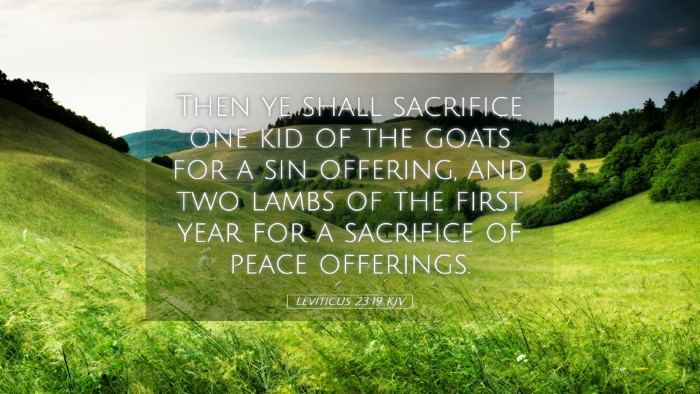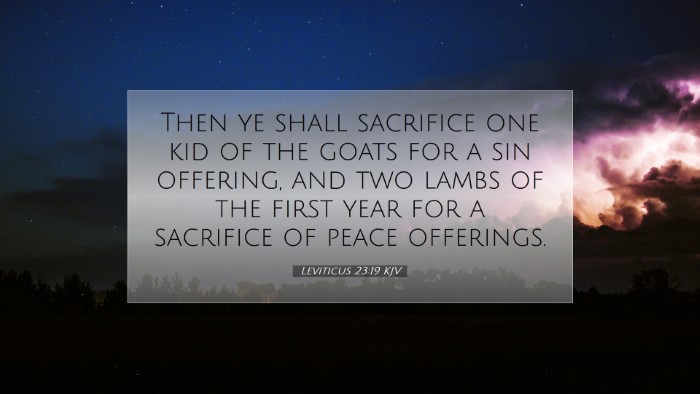Commentary on Leviticus 23:19
Verse (Leviticus 23:19): "Then you shall sacrifice one of the two lambs as a thanksgiving offering, and the other as a sin offering."
Introduction
The book of Leviticus serves as a central text in understanding the holiness of God and the means of approach to Him through sacrificial offerings. This particular verse is part of the instructions surrounding the Feast of Weeks, which highlights both the theme of gratitude and the acknowledgment of sin, encapsulated in the sacrificial system. The rich commentary from public domain scholars offers profound insights into the theological and practical implications of this passage.
Theological Insights
Matthew Henry's Commentary: Matthew Henry emphasizes the dual nature of the offerings mentioned in Leviticus 23:19. The thanksgiving offering is indicative of the believer's response of gratitude for God's provisions, particularly the grain harvest. Meanwhile, the sin offering serves as a necessary acknowledgment of humanity's inherent sinfulness before a holy God. Henry suggests that the combination of these sacrifices presents a balanced perspective of approaching God—recognizing both His goodness and our need for atonement.
Albert Barnes' Notes: Albert Barnes adds depth to the understanding of the sacrifices through the lens of their significance within the community of Israel. He points out that these offerings were communal acts of worship that not only served individual needs for forgiveness but also reinforced the collective identity of Israel as God's chosen people. Barnes draws connections to the New Testament, noting how these patterns of offering prefigure the ultimate sacrifice of Christ, who fulfills both roles—thanksgiving and atonement—perfectly in one offering.
Adam Clarke's Commentary: Adam Clarke comments on the procedural aspects of the sacrifices, highlighting the meticulous nature of the law given to the people of Israel. He notes that every detail provided in the sacrificial system illustrates the seriousness with which God regards sin and thanksgiving. Clarke encourages readers to appreciate the symbolism inherent in the lambs, as lambs were a common sight in their agrarian society, making the sacrificial system relatable to their everyday life. This element of accessibility in understanding God’s requirements is crucial for both ancient and modern audiences.
Practical Applications
- Understanding Sacrifice: For today’s students of Scripture, Leviticus 23:19 serves as a reminder of the dual nature of our relationship with God—one that is built upon gratitude and the need for reconciliation. Pastors can utilize this passage in sermons to illustrate the ongoing need for sacrifice in the spiritual life, emphasizing that genuine thanksgiving must be combined with a recognition of sin.
- The Importance of Thanksgiving: The act of giving thanks is woven into the fabric of worship, reinforcing the notion that believers are to express gratitude not only for spiritual blessings but also for material provisions. This is a crucial teaching point for congregations, encouraging a lifestyle of thankfulness that permeates all aspects of life.
- The Holiness of God: This verse also teaches about the holiness of God and the seriousness of sin. It is vital for theologians and Bible scholars to communicate the weight of sin and the necessary actions that follow—thereby underscoring the centrality of Christ’s atoning work in fulfilling these offerings.
Scholarly Reflections
This verse prompts deeper reflections on the character of God as both a provider and a just judge. The antithesis of thanksgiving and sin reflects the complexity of God's relationship with humanity. Scholars may examine how these offerings reveal key attributes of God, such as His mercy in the sin offering and His bounteous nature in the thanksgiving offering. Moreover, this duality can inspire profound theological discourse on how modern believers approach worship and sacrifice in light of Christ’s ultimate offering.
Conclusion
In conclusion, Leviticus 23:19 provides rich theological and practical insights that are beneficial for pastors, students, and theologians alike. Drawing from commentaries by Matthew Henry, Albert Barnes, and Adam Clarke, one can appreciate the depth of meaning behind the sacrificial laws and their implications for both ancient Israel and contemporary faith practice.


